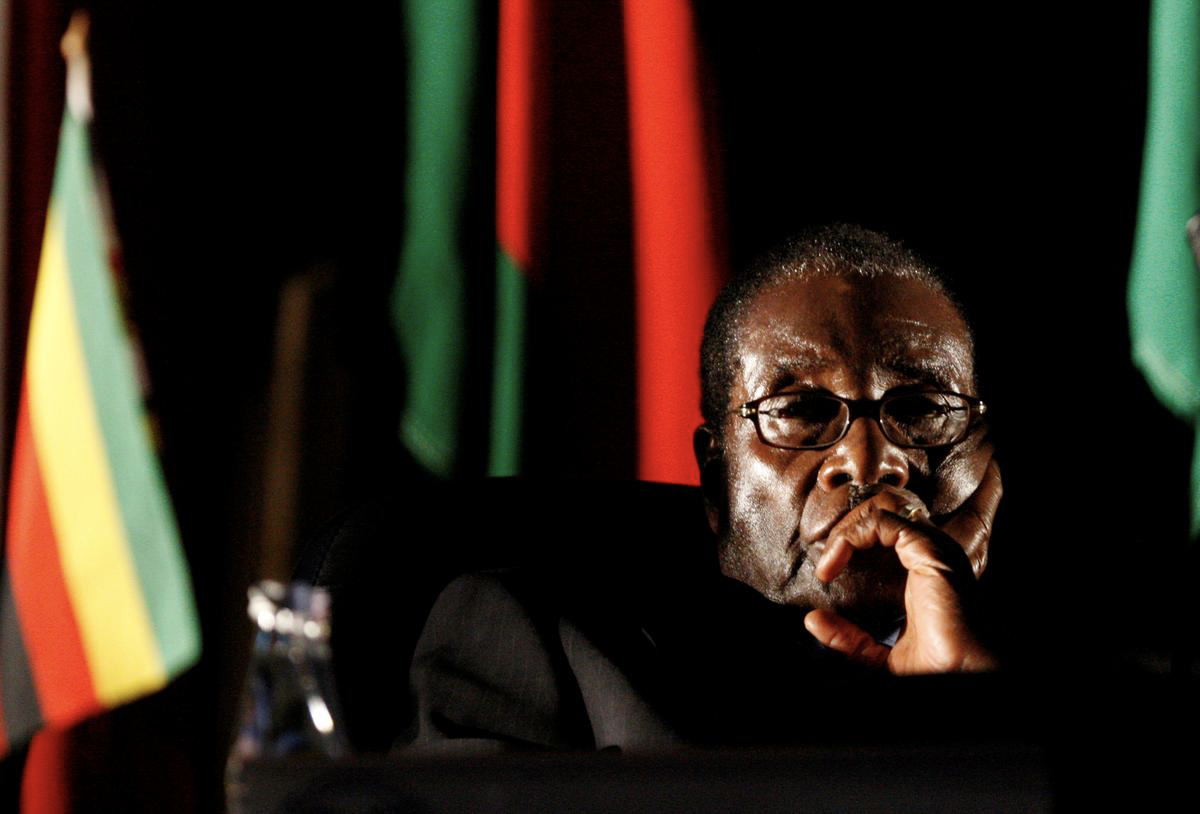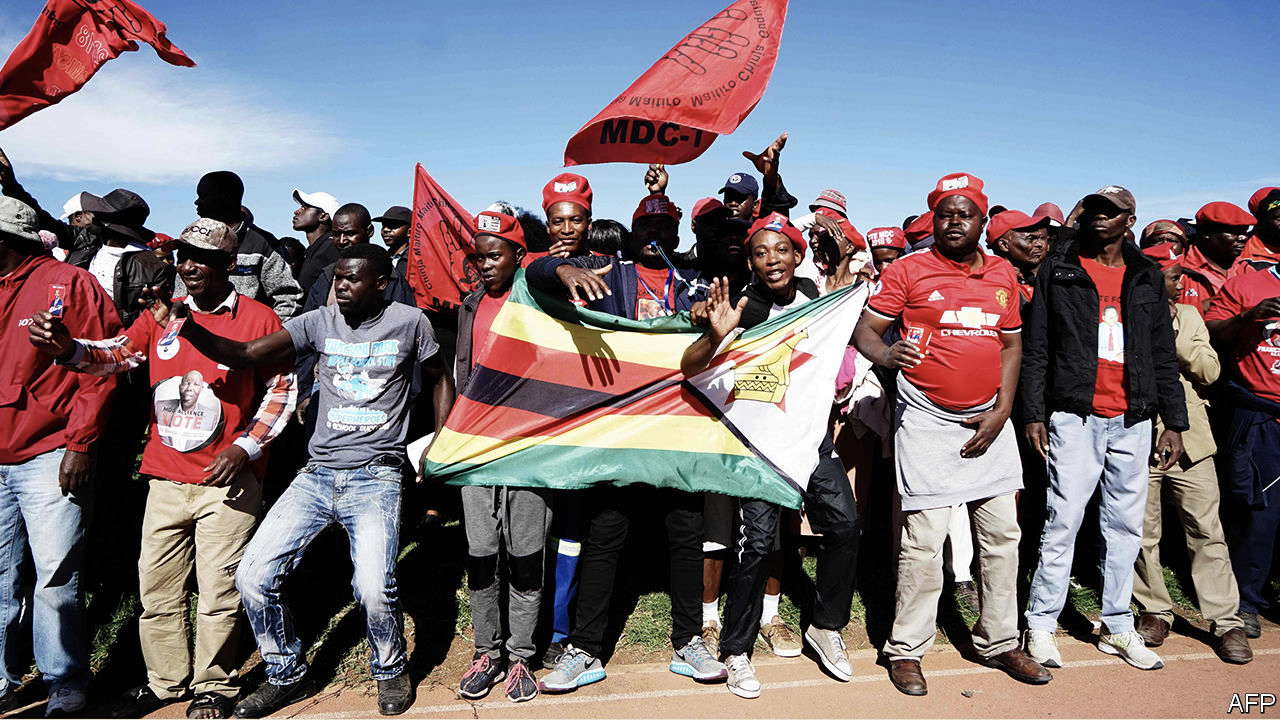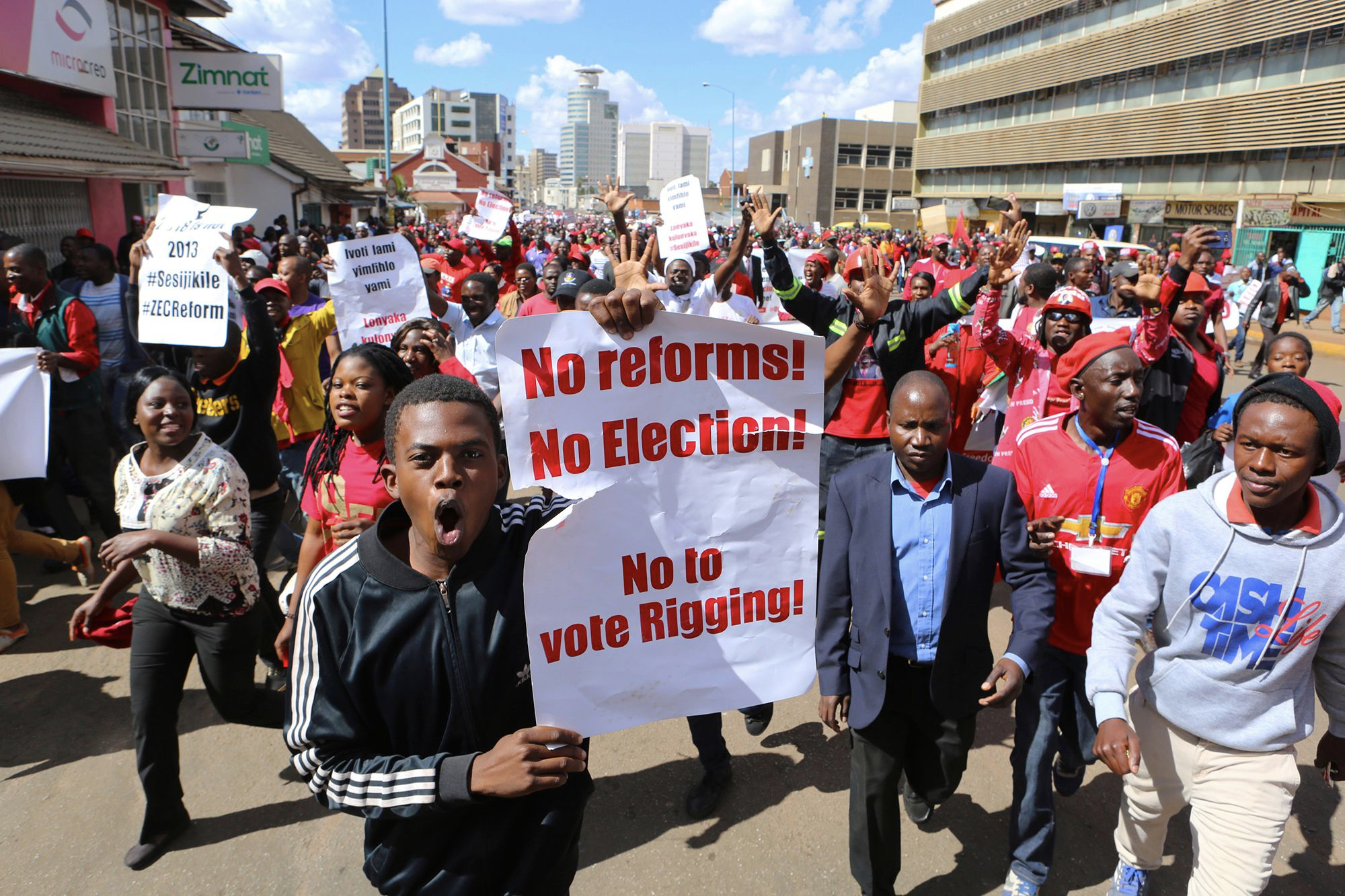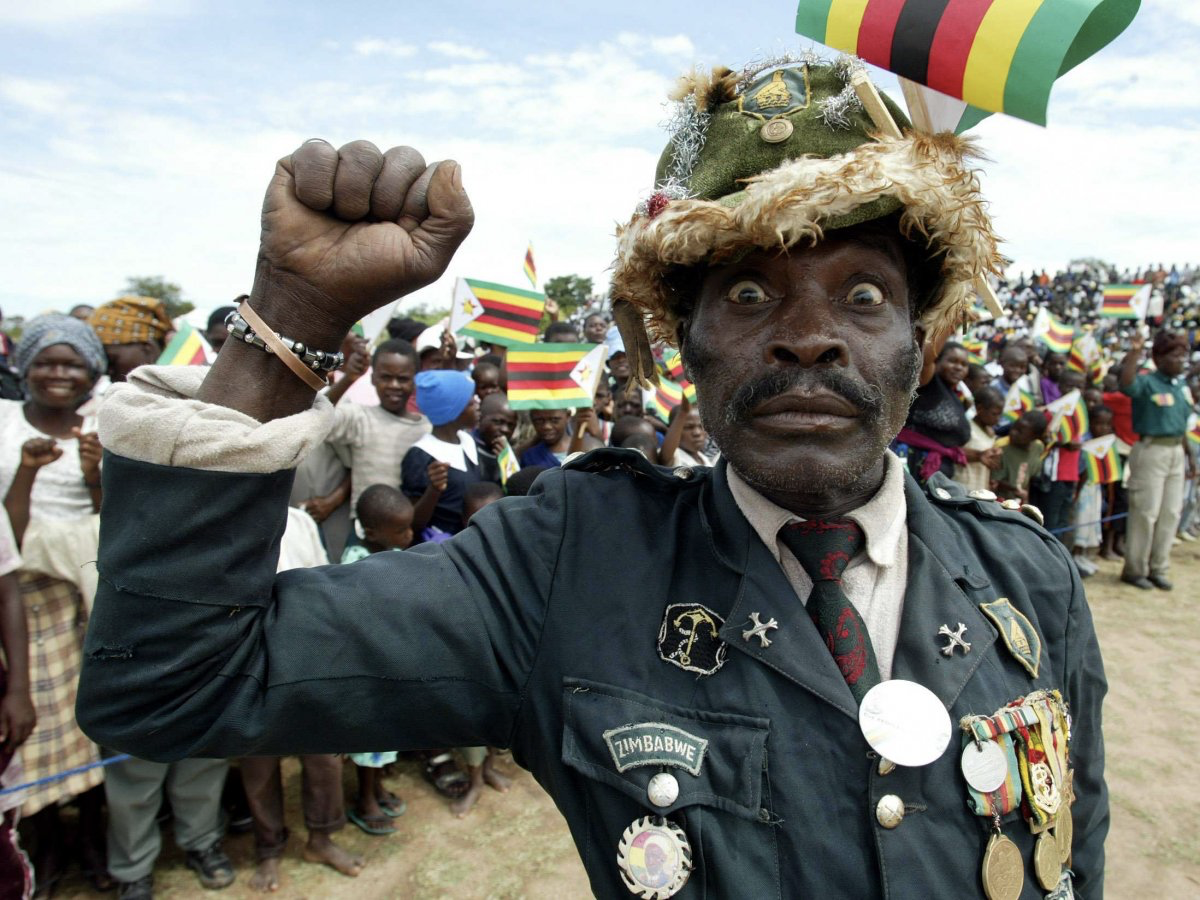My parents and two brothers (Jeremy aged 4 and Alastair aged 18 months) returned to Zimbabwe in 1993 to farm after my father was retired for medical reasons from the Metropolitan Police. My father is Zimbabwean and was born into a farming family from Gatooma, Rhodesia in 1961.
At the time they returned, Zimbabwe was booming economically and everything pointed towards a very rosy future. Little did they know, the man in charge of the country would launch Zimbabwe into a state of chaos.
By the mid-1990s Mugabe had become an irascible and petulant dictator, brooking no opposition, contemptuous of the law and human rights, surrounded by sycophantic ministers and indifferent to the incompetence and corruption around him. His record of economic management was lamentable. He had failed to satisfy popular expectations in education, health, land reform, and employment. And he had alienated the entire white community. Yet all the while Mugabe continued to believe in his own greatness. Isolated and remote from ordinary reality, possessing no close friends and showing clear signs of paranoia, he listened only to an inner circle of conspiratorial aids and colleagues. Whatever difficulties occurred he attributed to old enemies—Britain, the West, the old Rhodesian network—all bent, he believed, on destroying his “revolution”. — Our Votes, Our Guns: Robert Mugabe and the Tragedy of Zimbabwe - Martin Meredith
The economy quickly deteriorated and by the time of my birth in 1997, unemployment had trebled and unemployment was almost at 50%. The war veterans who fought during the war for independence starting demanding pensions and Mugabe put together a pension package that cost the country ZD 4.2 billion that was to be recovered from new taxes but government had to abandon these taxes due to mass protests. In January 1988, riots broke out in Harare and the army was deployed with the result of at least 10 people killed and hundreds injured.
To contribute further to the economic problems, in 1988, parliament ordered Zimbabwe troops into the DRC and committed 3000 troops at a cost of US$1M a day.
In 2000, came a huge insult to Mugabe, when Mugabe’s governments draft constitution was put to the vote and it was rejected by 53% to 44%. Mugabe was furious, and blamed the white minority for orchestrating his defeat, referring to them as “enemies of Zimbabwe”. - Holland Heidi (2008) Dinner with Mugabe: The Untold Story of a Freedom Fighter who became a tyrant.
At about the same time, the Movement for Democratic Change ‘MDC’ started to have success led by trade unionist, Morgan Tsvangirai. Although my parents were non Political, many of their farming friends started to support the MDC. This enraged Mugabe further and was probably the final nail in the coffin for the “white farmers” in Zimbabwe.
In June 2000, parliamentary elections took place and the MDC were successful, despite Mugabe inflicting mass violence, harassment and killings on the civilans. With fear instilled in voters, the vote produced 48% for Zanu-PF and 47% for MDC and for the first time, ZANU-PF were denied the two thirds majority they required. The European Union declared that the elections were neither free nor fair.
As a result, Mugabe took to war against the White Farmers and the land invasions began as war veterans attacked and occupied white-owned farms. This was a terrifying time for my parents and the farming community as a whole. My father was heavily involved in providing security to commercial farms and had to shut down his operation with 24 hours’ notice and ordered to vacate by the armed wing of ZANU-PF. My father still helped the local farmers through the community radio system and spent many hours at the local police station trying to get the police to react to such invasions without much success. Our radios used to go all night long as people were invaded.
My parents took the bold decision to move into the capital, Harare. All the dreams of giving their family a better life in tatters and a very uncertain future awaited them. My father went into depression as he felt so helpless and useless. My mother had to try and keep the family together. Luckily, my brothers were at boarding school, so were somewhat protected from all of this. At this point my mother asked my father to decide on whether we should return to the UK. His decision was to stick it out but we lost many friends who took the decision to leave, either going to Australia, New Zealand or UK.
In May 2000, Mugabe issued a decree under the Presidential Powers (Temporary Measures) Act which empowered the government to seize farms without providing compensation, insisting that it was the British government that should pay compensation. This was overturned by the High Court and then the Supreme Court but this did not stop them continuing.
“The courts can do whatever they want, but no judicial decision will stand in our way … My own position is that we should not even be defending our position in the courts. This country is our country and this land is our land … They think because they are white they have a divine right to our resources. Not here. The white man is not indigenous to Africa. Africa is for Africans, Zimbabwe is for Zimbabweans.” — Mugabe on the land seizures
As you can imagine the impact on the agricultural sector was devastating. Apart from farmers not being able to grow the basic food requirements for the country, many farm workers had also been displaced and added to the list of unemployed. By October 2003, Human Rights Watch reported that half of the country’s population were food insecure, lacking enough food to meet basic needs. In 2000, the country’s GDP was US$7.4 billion; by 2005 this had declined to US$3.4 billion.
Having decided to stay in Zimbabwe, we then moved to a smallholding just outside of Harare where we had a nursery growing lawn grass and other plants. At this time we started to see the impact of hyperinflation.
“By 2007, Zimbabwe had the highest inflation rate in the world, at 7600%. By 2008, inflation exceeded 100,000% and a loaf of bread cost a third of the average daily wage”. Norman, Andrew (2008)
Mugabe: Teacher, Revolutionary, Tyrant. Hyperinflation, was all consuming, everybody became “hunters and gatherers”, trying to keep value of the little Zimbabwe Dollar they had. My mother had to leave the country to work in order to bring in valuable USD that could be traded in order to survive. My brothers were sent to boarding school in South Africa and I was at a boarding school outside Harare. This was a terrible period of instability for our family.
Following the parliamentary and presidential elections in 2008, Tsvangirai beat Mugabe by 47.9% to 43.2%. Neither candidate secured the necessary 50% required so a run off was required. Mugabe was humiliated and he deployed his war veterans in a violent assault on Tsvangirai supporters with at least 153 MDC supporters being killed and resulted in Tsvangirai pulling out of the run off and Mugabe being declared victor with 85.5% and being immediately re-inaugurated as President. However SADC oversaw the establishment of a power-sharing agreement brokered by Mbeke in September 2008. Under the agreement, Mugabe remained President while Tsvangirai became Prime Minister. This was not successful with ZANU-PF unwilling to share power.
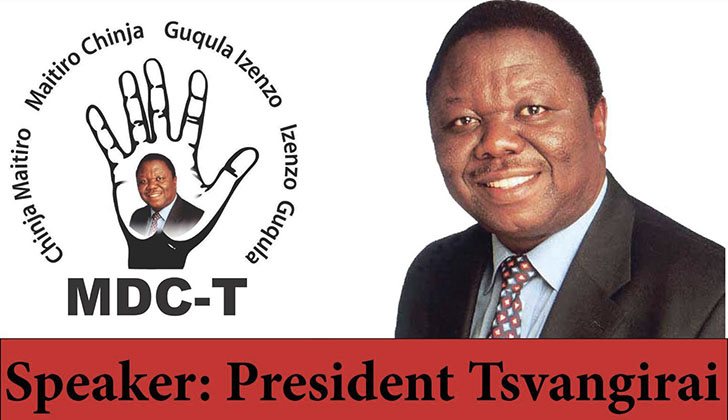
In early 2009, it was declared that Zimbabwe would recognize US Dollars as legal tender and this provided us with a period of stability and the country began to show signs of recovery.
My mother returned from working abroad but unfortunately the land invasions did not stop and even smallholdings became a target and eventually we had to move off our smallholding due to ongoing threats. In 2010, my parents managed to buy a house in Harare after renting for two years and this was the best thing that happened as it gave our family stability after so much upheaval and is still our home today.
In 2013, Mugabe put himself up for re-election, the main tool used by ZANU-PF was offering food to buy their vote. ZANU-PF won a landslide victory with 61% of the presidential vote and two thirds of parliamentary seats. Again the elections were not considered free or fair.
In 2014 Mugabe turned 90 and in 2015 he announced he would be running for re-election in 2018 and that he had no plans to retire but his body was ailing and he had been taking numerous trips to the far east for medical treatment.
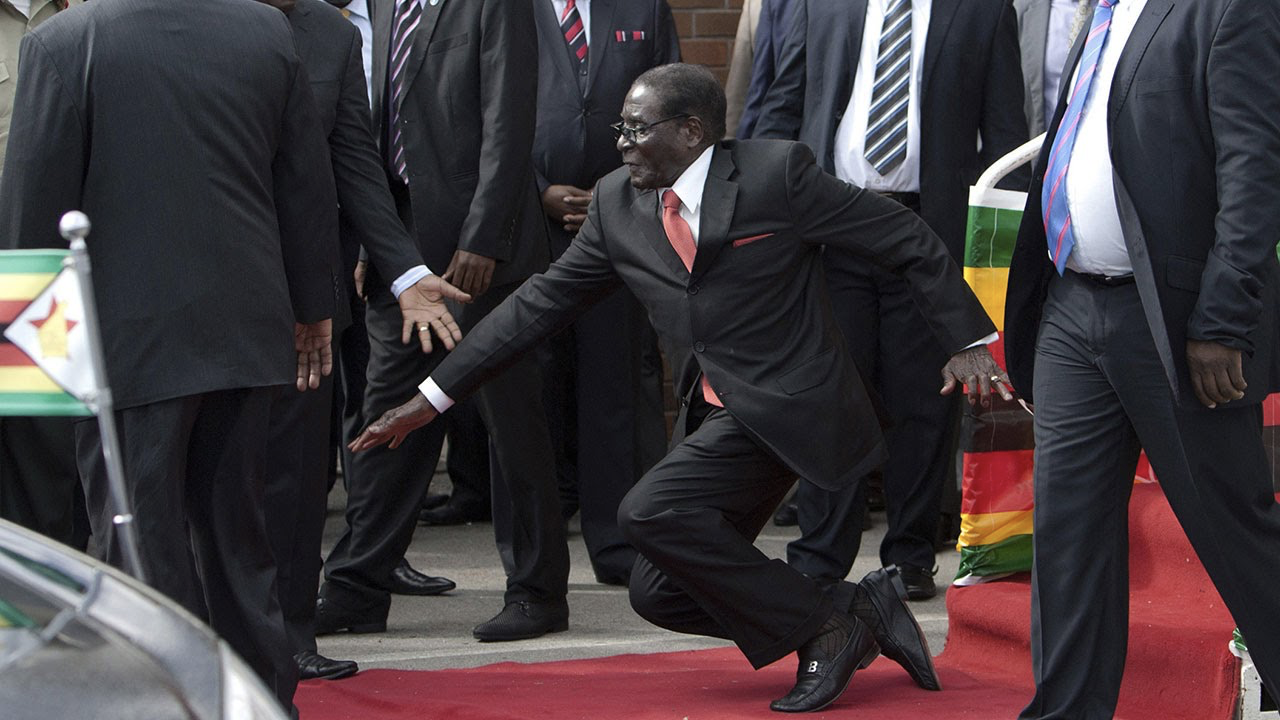
In a turn of events, on 6 November 2017, Mugabe sacked his first vice president, Emmerson Mnangagwa and this increased speculation that he wanted his wife Grace to become his successor and on 15 November 2017, the Zimbabwe National Army placed Mugabe under house arrest. Around this time, it was quite scary, as there was often the sound of gunfire at night as one of the Mugabe supporters was raided. Many of these supporters disappeared over borders and are currently still living outside the country.

On 19 November 2017, he was sacked as leader of ZANU-PF, and Emmerson Mnangagwa was appointed.

The party also gave Mugabe an ultimatum to resign as President or he would be impeached. Hours after the impeachment debate commenced, Mugabe announced his resignation.
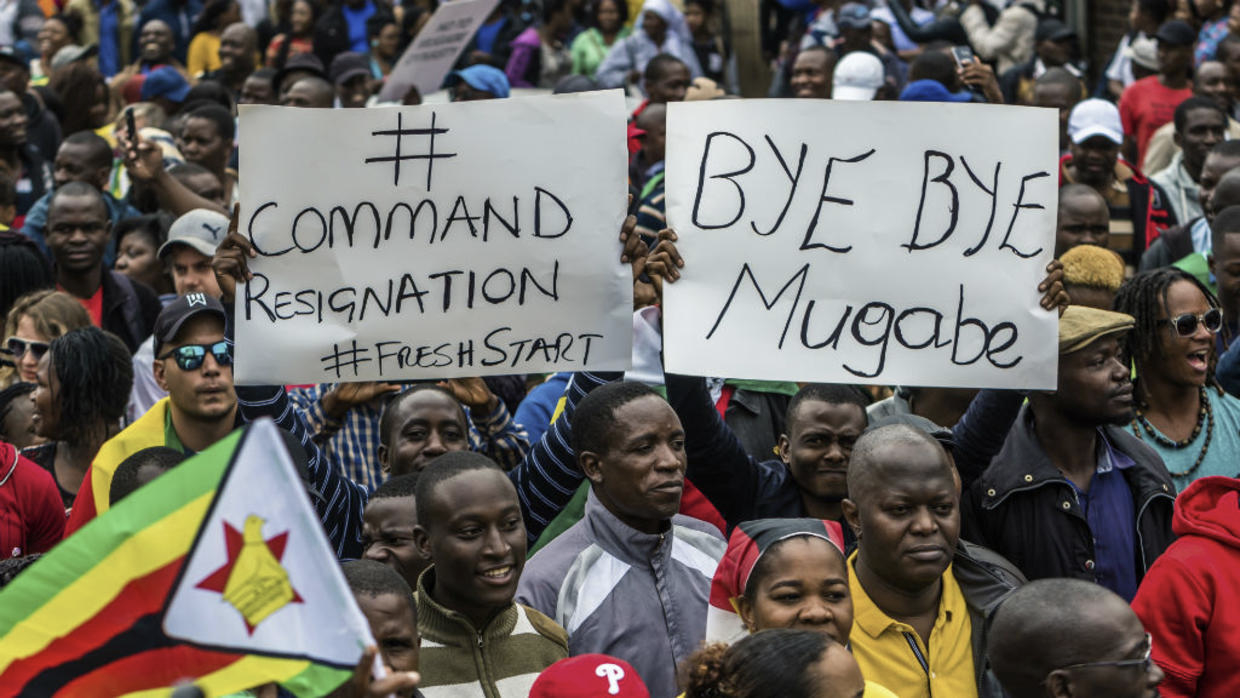
Sadly, none of the family were in the country at that time of the resignation but the parties went on long into the night, with the general public dancing with the army officers and everyone believed that a better future would follow. Nothing could be worse than the despot Mugabe.
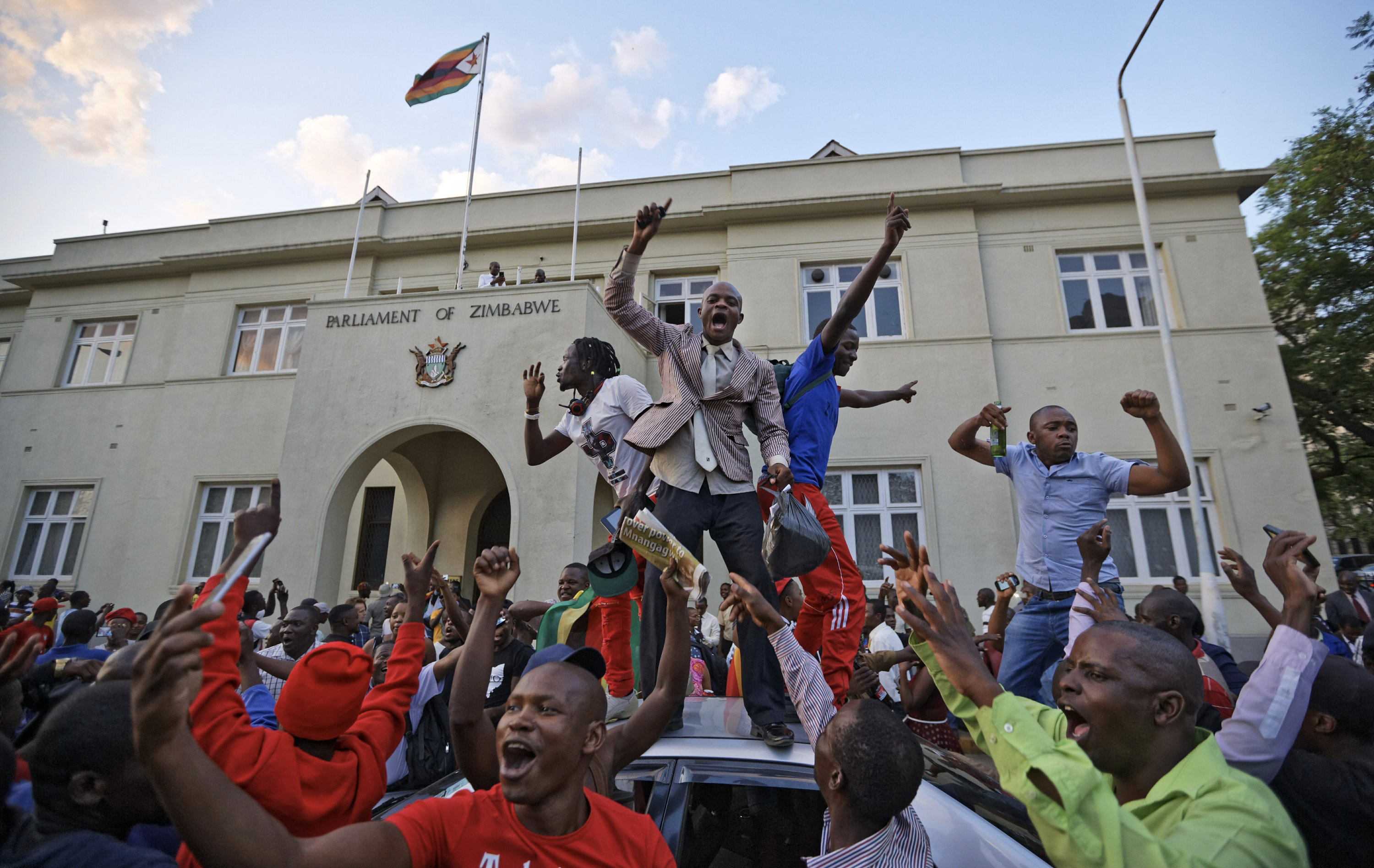
In his first interview after his resignation, Mugabe claimed that he had been ousted in a “coup d’etat”.
Mugabe’s health was now failing, he was hospitalised in April 2019 and died in Singapore on the 6 September 2019 aged 95. His body was flown back and he was finally buried in his home area of Zvimba on 28 September 2019. There was no outpouring of grief or sadness for Mugabe.

However, Zimbabwe is still suffering and life has not got better.
